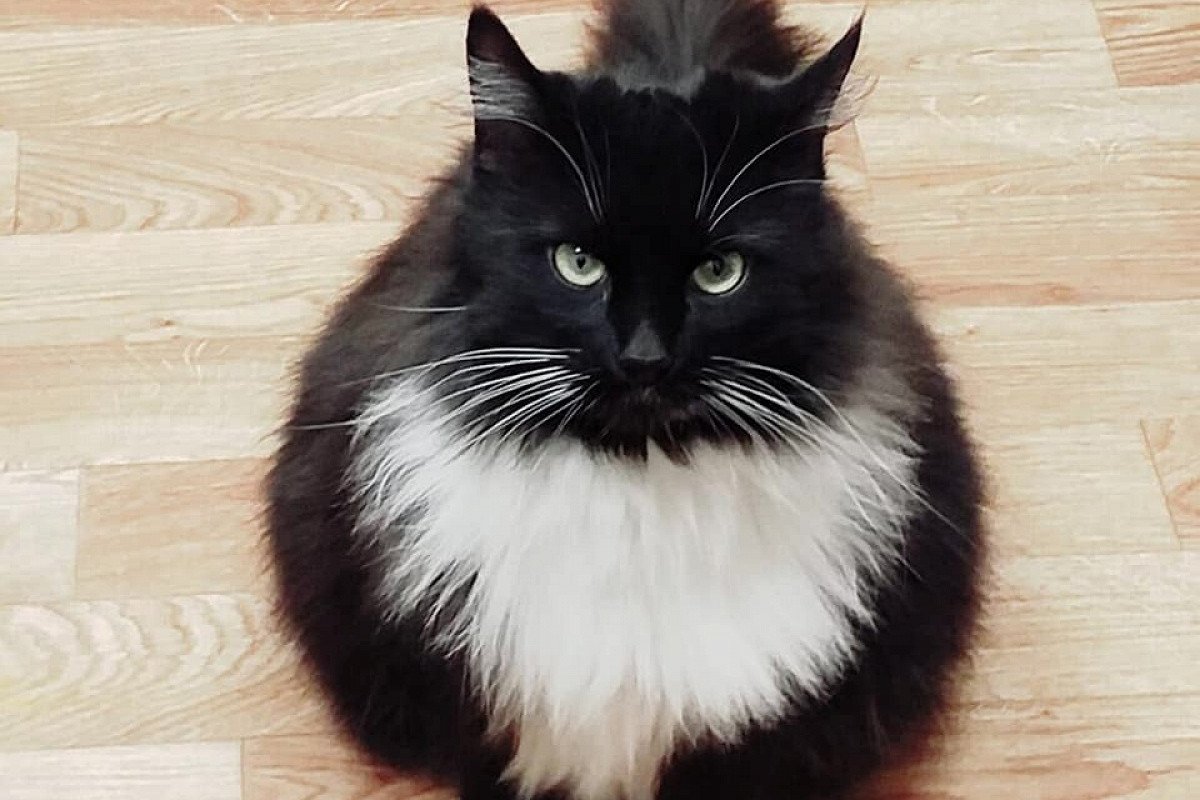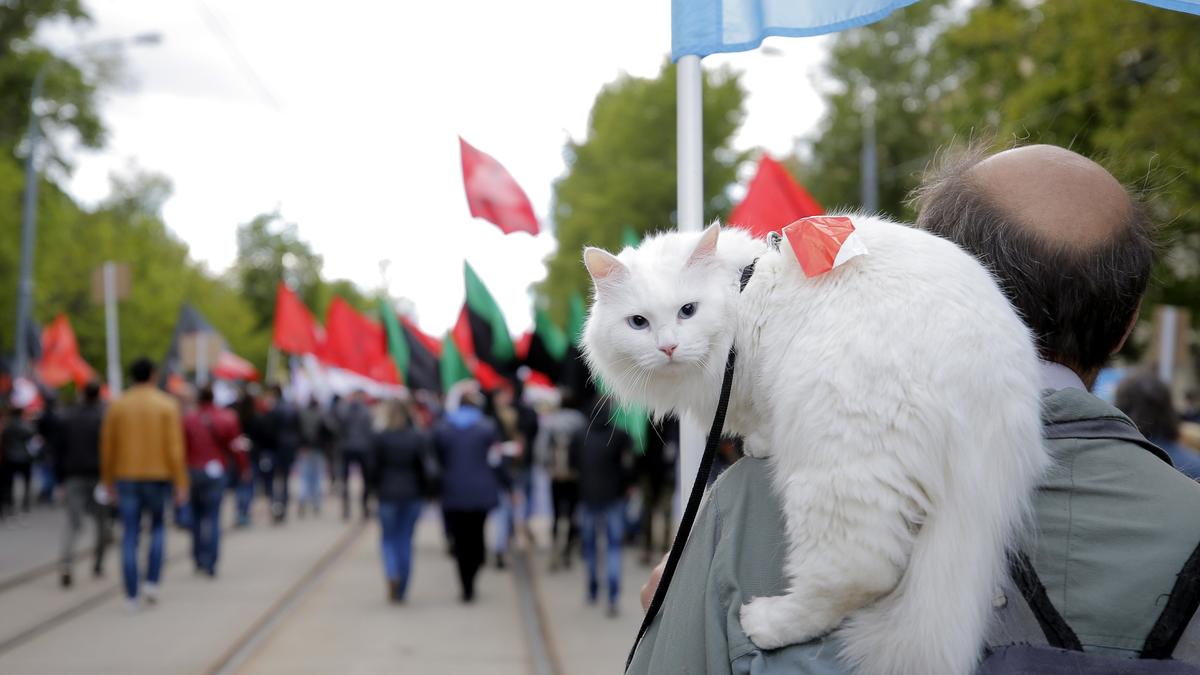Last month Russia experienced a rare moment of unity over the death of a pet cat that was thrown off a train in freezing weather. Some 380,000 people signed a petition demanding that the employee responsible be dismissed, and another 180,000 demanded a criminal case to be launched against her.
By comparison, a petition demanding the release of jailed opposition politician Alexey Navalny’s started by Novaya Gazeta in 2021 gathered just over 220,000 signatures, while a similar call for the release of opposition politician Ilya Yashin gained only 70,000 supporters in 2022.
Twix the cat, who escaped his carrier while travelling from Yekaterinburg to St. Petersburg, was thrown into the snow during a stop in the city of Kirov on 11 January after the conductor found him in the train corridor and mistook him for a stray.

Twix the cat. Photo: social media
The moment was caught on CCTV footage and went viral on social media, leading to a massive search effort by volunteers across the region and prompting an official response from Russian Railways, who apologised to the cat’s owners and promised to review their animal handling protocol.
One of Russia’s biggest state news outlets, RIA, dedicated at least 10 articles to the cat, while another state-affiliated newspaper published a detailed timeline — a format usually reserved for major news events — on what happened to it.
Petitions on Russian social media quickly gained traction, with some demanding the dismissal of the conductor responsible and others demanding she face criminal charges. A few State Duma deputies spoke out on the issue, calling for more robust animal protection laws. One deputy, Vladimir Burmatov, announced that he had been appointed head of a committee dedicated to ensuring that another “tragedy” like the one with Twix would be “impossible”.
The public pressure led Russian Railways to temporarily dismiss the conductor while it completed an internal investigation.
Stories of cat-related injustice often make headlines in Russia’s state-funded and independent media alike: among the less tragic recent protagonists was Markiz the cat, who was kicked out of a public library in Moscow following a visitor complaint and who was subsequently adopted by the head librarian. Burmatov was quick to jump to the cat’s defence once again, noting that “there are no rules against keeping cats in libraries”.

Markiz the library cat. Photo: VK
Another cat, Spicy, who was heavily injured, was thrown out in the snow by a vet in Nizhny Novgorod in late January. A petition was launched online calling for the police to launch a criminal case against the vet for animal cruelty, with activists planning to bring the matter to the regional governor and the Ministry of Agriculture.
It’s perhaps unsurprising that cat-related injustice provokes such fury in Russia. Nearly half of the country’s households have pet cats, the highest rate in the world.
Psychologist Olga Kozlovskaya* also said that the suffering of animals and children, both of which are typically viewed as “defenceless”, tends to attract much more sympathy than the suffering of adults.
But the public response to Twix’s death went beyond sympathy and to true rage. Another female train conductor who was mistaken for the woman in the video received hate mail and death threats, her daughter reported.
Experts have suggested that for some Russians, Twix’s story may have become a way to vent emotions that have been suppressed by the increasing censorship seen since the full-scale invasion of Ukraine.
Kozlovskaya speculated that many Russians were living with feelings of “internal aggression” caused by the war in Ukraine. She suggested that they may have found it both easier and safer to lash out at an unknown train conductor than to blame politicians or take action against the war.
Political scientist Yekaterina Schulmann also said she viewed the public outcry as symptomatic of deeper trauma within society. In today’s Russia, she said on her weekly radio program, it is “forbidden to mourn the dead”, including dead friends and family members. “That’s why the whole country is crying over a cat — these are unshed tears over something else.”
*Not her real name
Join us in rebuilding Novaya Gazeta Europe
The Russian government has banned independent media. We were forced to leave our country in order to keep doing our job, telling our readers about what is going on Russia, Ukraine and Europe.
We will continue fighting against warfare and dictatorship. We believe that freedom of speech is the most efficient antidote against tyranny. Support us financially to help us fight for peace and freedom.
By clicking the Support button, you agree to the processing of your personal data.
To cancel a regular donation, please write to [email protected]

